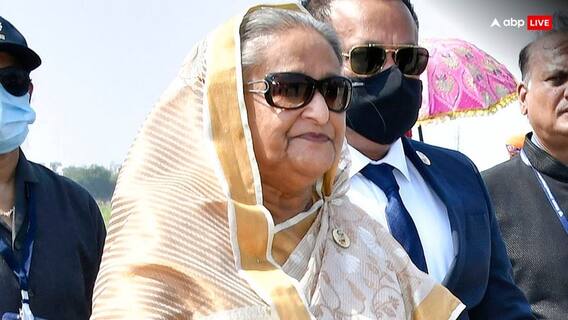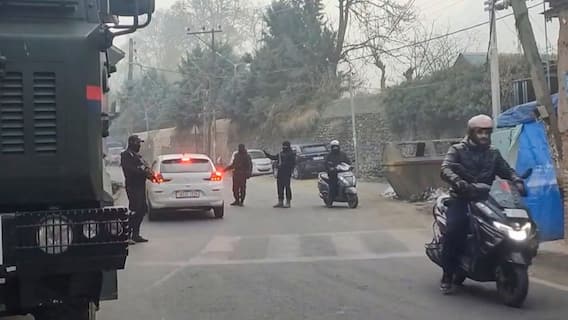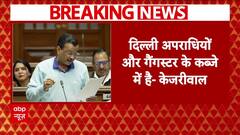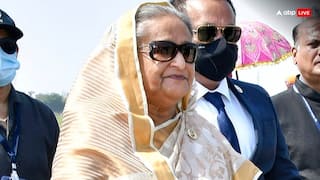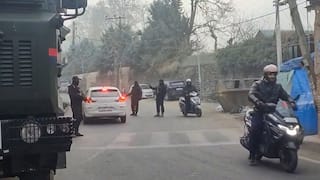Militant outfits get 'preferential treatment' in Pakistan, says European expert

Amsterdam [Netherland], November 30 (ANI): A European expert has said that the release of Jamaat-ud-Dawah (JuD) chief and 26/11 Mumbai terror attack mastermind Hafiz Saeed from house arrest in Pakistan has created an impression that Islamabad provides preferential treatment for militant Islamist outfits, which are acting as strategic assets against their perceived rivals.
"Hafiz Saeed was released from his house arrest on 24 November 2017, after the Pakistan government decided against detaining him any further, since according to them there was no solid evidence for his involvement in the 2008 Mumbai attacks. The way in which this case has unfolded creates the impression that Islamabad provides preferential treatment for militant Islamist outfits, which are acting as strategic assets against their perceived rivals," said Yoana Barakova, Research Analyst at the European Foundation for South Asian Studies (EFSAS) in an article.
He added that these groups are utilised as tools towards achieving Pakistan's strategic objectives.
Barakova also warned that Islamabad must not forget that these terrorist organizations, allegedly under state patronage, will eventually adopt a life on their own and destructively backfire against their guardians.
He said that the Pakistani Army, the actual epicentre of power, together with the powerful intelligence agency, Inter-Services Intelligence (ISI), still distinguishes between 'bad' terrorists, those who target Pakistani Security Forces, and 'good' terrorists, those who advance its geo-political aims, vis-a-vis Afghanistan, India, remains a matter of grave concern for the international community.
Barakova further said that the Pakistani Government had arrested Saeed to ingratiate itself with the new Administration in Washington days after Donald Trump was sworn in as the U.S. President.
However, he mentioned that no evidence was produced in court during Saeed's ten months house arrest despite the fact that India handing over fifteen dossiers to Pakistan, linking Saeed to the Indian Parliament attack in 2001 and the Mumbai attacks in 2008.
"Pakistan's dangerous 'good terrorist, bad terrorist' game once again came to the surface with the recent release of the 26/11 (Mumbai 2008) attack mastermind Hafiz Mohammad Saeed, who is the founding member of the radical Islamist organization Jamaat-ud-Dawa, and its military branch, Lashkar-e-Taiba, both dedicated to installing Jihadist rule over India and Jammu & Kashmir," he said.
The United States strongly condemned the release of Lashkar-e-Taiba (LeT) leader Hafiz Saeed from house arrest and called for his immediate re-arrest and prosecution.
The White House in a statement said: "The United States strongly condemns the release of Lashkar-e-Tayyiba (LeT) leader Haft Saeed from house arrest in Pakistan and calls for his immediate re-arrest and prosecution."
Barakova describes Saeed's faithless 'fight for freedom' in Kashmir as nothing more than simply the brutal and cold-blooded massacre of thousands of innocent people.
Barakova said that considering the support Saeed enjoys from the most powerful corridors in Islamabad and Rawalpindi, which is evident from Musharraf's recent statement in support of the terror groups, the Lashkar-e-Taiba (LeT) and the Jamaat-ud-Dawah (JuD), "his possible re-arrest would be nothing more than an eyewash in order to avoid 'repercussions' against the Pakistani State which could mean cuts in aid and strategic losses in Afghanistan."
He also noted Saeed establishing a political offshoot, with the backing of the Military, called the Milli Muslim League (MML), during his detention time, in order to participate in the upcoming general elections.
Barakova mentioned in his article that MML's Sheikh Yaqoob received 5,822 votes - over four times that of the Pakistan Peoples' Party - in little over four weeks of its existence.
Saeed is a wanted terrorist by India and the United States for his alleged role in masterminding the 2008 terror attacks in Mumbai that claimed 166 lives.
He even carries a bounty of 10 million USD (approx. Rs 66 crore) on his head for his role in the attack. He is an internationally designated terrorist but continues to be an influential person in Pakistan's certain religious groups.
Pakistan claims to have banned Lashkar-e-Taiba (LeT), but following the attack on the Indian Parliament in 2002, it re-emerged as Jamaat-ud Dawa (JuD).
The United States has designated the JuD as a front for the LeT.(ANI)
This story has not been edited. It has been published as provided by ANI
Trending News
Top Headlines





